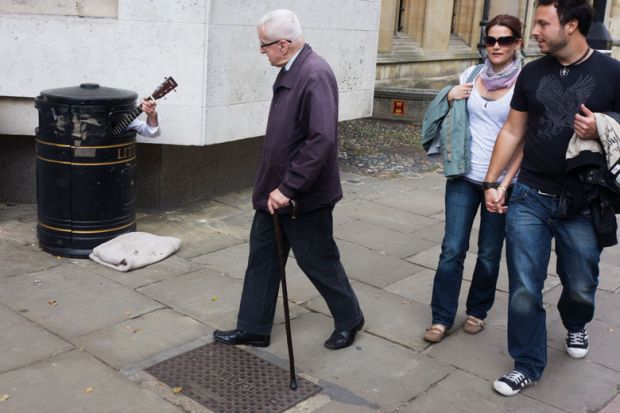The University of Cambridge is facing new legal and internal challenges to its policy of forcing academics to retire at the age of 67.
Around 120 current and former professors at the institution have signed a letter to the recently installed vice-chancellor, Deborah Prentice, urging her to call a vote on abolishing the Employer Justified Retirement Age (EJRA) because of the risk of “brain drain”.
The university has already instigated a wide-ranging review of the policy – which has been used since 2012 to ensure older professors are moved off the payroll and to open up opportunities for younger academics – after the University of Oxford, the only other English institution to enforce retirement, lost a legal case against four of its former staff members.
Cambridge now also faces being sued over the EJRA itself for the first time after Ross Anderson, a computer science professor who was forced to retire in September, signalled his intention to launch a claim for unfair dismissal and discrimination.
Although he continues to work for the university one day a week, Professor Anderson, who will be represented by the law firm Doyle Clayton, said he felt he had been “cut off in his prime”.
“I’m still fit, still on top of it, still producing research at the rate of a dozen good papers a year. There are many other academics who continue to contribute into their seventies and eighties,” he told Times Higher Education.
Oxford lost its case in March after a judge ruled it had not shown the policy was a “proportionate means of achieving a legitimate aim”, partly because it lacked data on how many vacancies had been created due to the EJRA in the 10 years it has operated.
It is understood legal wrangling is ongoing following the tribunal with at least two professors seeking to be reinstalled in their former roles as well as compensation for loss of salary. A remedies hearing for these professors is not due to take place until July next year.
In their letter, the Cambridge professors claim their institution’s aim of opening up opportunities for younger academics “has not materialised in practice”.
“In any case, the argument depends on the ‘lump of labour’ fallacy, which assumes a fixed amount of academic work,” it added. “In reality, senior faculty can generate new research and opportunities, making the academic labour market far from zero-sum.”
Calling the EJRA “immoral, illegal, unfair, uneconomic and bad employment practice”, the letter claims it harms the institution’s ability to attract world-class scholars, forces senior academics to move elsewhere to continue their research and causes stress and poor mental health for those approaching the mandatory retirement age.
The university’s council was due to debate the policy on 27 November and the letter’s signatories called on Professor Prentice to instigate a vote in Regent House, the university’s main decision-making body, before another cohort of senior staff lose their jobs.
A Cambridge spokesperson said: “The university has established a review group to consider whether its Employer Justified Retirement Age should remain, be abolished or be updated, and the university council will shortly receive an update on its work.
“It is aware of the considerable interest that all staff, not just those who are approaching retirement, have on this matter and has been consulting widely.
“The review group is aiming to complete this work in time for the 2024 cohort of retirees to know where they stand, and the council will be considering the feasibility of this timetable later this term.”
Register to continue
Why register?
- Registration is free and only takes a moment
- Once registered, you can read 3 articles a month
- Sign up for our newsletter
Subscribe
Or subscribe for unlimited access to:
- Unlimited access to news, views, insights & reviews
- Digital editions
- Digital access to THE’s university and college rankings analysis
Already registered or a current subscriber? Login








